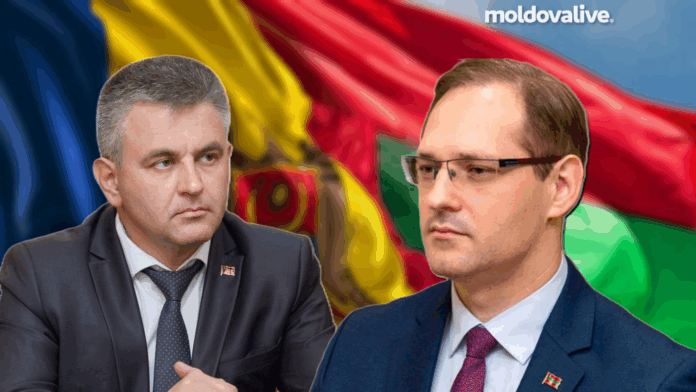Tiraspol leader Vadim Krasnoselski claims that the so-called foreign minister, Vitali Ignatiev, cannot leave the Transnistrian region due to travel restrictions imposed by Moldova’s constitutional authorities. He stated it in an interview with the Russian state news outlet TASS, arguing that these restrictions jeopardize the negotiation process.
Krasnoselski referred to the provisions of the Criminal Code, often called the “law on separatism.” He believes Moldovan authorities could arrest Transnistrian officials on Moldovan territory based on that law.
”Chisinau fully knows the restrictions. They clearly understand their law on separatism and the restrictions enforced at Chisinau Airport. Authorities imposed special restrictions on Mr. Ignatiev, and everyone is aware of this. These restrictions currently prevent him from leaving Transnistria.
Someone deliberately created this situation. I won’t name who benefits from this plan, but its purpose is to remove Ignatiev from the negotiation process as much as possible,” Krasnoselski said.
FOR THE MOST IMPORTANT NEWS, FOLLOW US ON TWITTER!
Officials from the Bureau for Reintegration Policies told Realitatea that Tiraspol uses the ”separatism law” as a pretext to avoid attending official meetings on territory controlled by the constitutional authorities. They noted that Transnistrian representatives do not always cite these claims when making private or informal visits to the right bank of the Nistru River or when traveling abroad, which shows a selective approach from Tiraspol.
Chisinau officials also stated that between 2006 and 2011, Moldova’s criminal legislation did not provide penalties for separatism. Even then, Transnistrian officials demanded meetings on the left bank of the Nistru.
”Some regional actors even show up at Bender or Tiraspol meetings with several local bodyguards, which raises serious questions, especially since Chisina’s delegations consist only of government officials,” added the Bureau.
Between January 2024 and May 2025, Chisinau and Tiraspol representatives held four working meetings as part of the Transnistrian settlement process (three in Bender and one in Tiraspol). Several additional consultations took place online, but only in the 1+1 format.
Meanwhile, Tiraspol continues to reject videoconference-based discussions.


